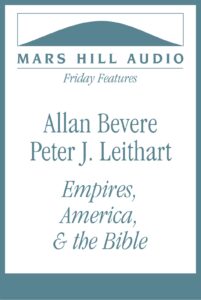
Critiquing “empire criticism”
Allan Bevere and Peter Leithart evaluate "empire criticism," a way of reading the New Testament with an anti-imperial focus. (36 minutes)
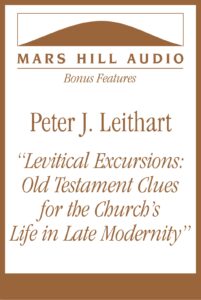
Lessons from Leviticus
The book of Leviticus may be assumed to be irrelevant for charting a way through the challenges of modernity. Theologian Peter J. Leithart disagrees. (22 minutes)
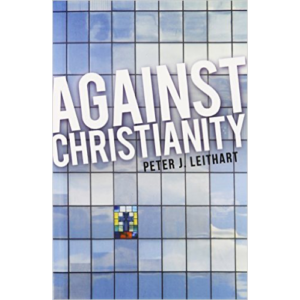
“Christianity” is gnostic
Peter Leithart on why what the Church is and practices is not a “religion”
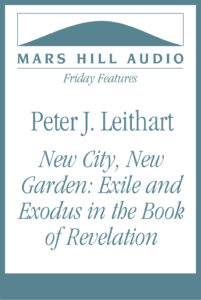
The simplicity beneath the complexity
Theologian Peter J. Leithart offers an outline of the book of Revelation, focusing on the themes of the challenge of faithfulness and the meaning of martyrdom. (46 minutes)
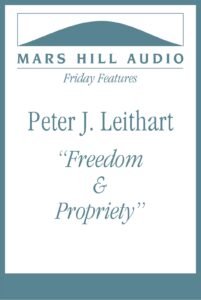
The impact of the rise of non-liturgical worship
Peter J. Leithart reviews Lori Branch’s book Rituals of Spontaneity, in which Branch argues that an “ideology of spontaneity” has led to the modern rise of non-liturgical forms of worship. (29 minutes)
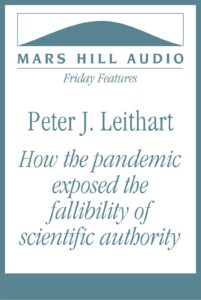
When “follow the science” doesn’t work
Peter Leithart reflects on the all-too-human nature of science and the effects of quarantine on the Church's embodied mission. (32 minutes)
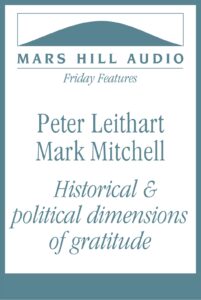
The public and political dimensions of gratitude
Peter Leithart and Mark Mitchell both assert that gratitude has a public and political concern, and that Christianity caused a significant shift in the understanding of gratitude. (19 minutes)
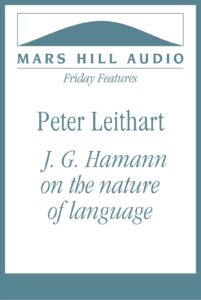
Deconstructing the Enlightenment
Peter Leithart discusses Johann Georg Hamann’s insights about the nature of language and his prophetic critique of the Enlightenment. (17 minutes)
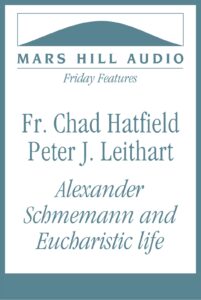
Fr. Chad Hatfield and Peter J. Leithart on Alexander Schmemann
Alexander Schmemann’s book asks a set of questions about “Christianity and culture” that typically don’t get asked, questions that re-center our lives in gratitude and worship. (20 minutes)
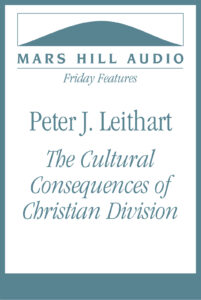
Peter J. Leithart on Church unity
Peter J. Leithart discusses how the sixteenth-century Colloquy of Marburg shifted the understanding of the Eucharist from something that Christians primarily do together to something about which Christians think or believe a certain way. (70 minutes)
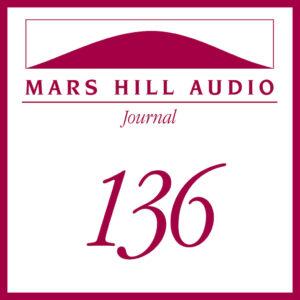
Mars Hill Audio Journal, Volume 136
FEATURED GUESTS:
Thomas Albert Howard, Mark Noll, Andrew Pettegree, Peter J. Leithart, Norm Klassen, James Litton, and Joseph O’Brien
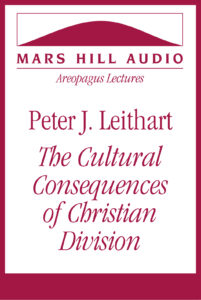
Peter J. Leithart: The Cultural Consequences of Christian Division
Peter J. Leithart discusses how the sixteenth-century Colloquy of Marburg shifted the understanding of the Eucharist from something that Christians primarily do together to something about which Christians think or believe a certain way. (69 minutes)
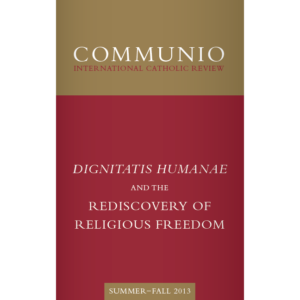
In defense of unity
Peter J. Leithart on the relationship between ecclesial unity and religious liberty
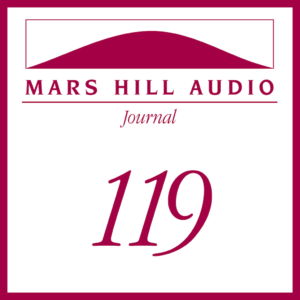
Mars Hill Audio Journal, Volume 119
FEATURED GUESTS:
Mary Eberstadt, Allan Bevere, Peter J. Leithart, Steven Boyer, Karen Dieleman, and Peter Phillips
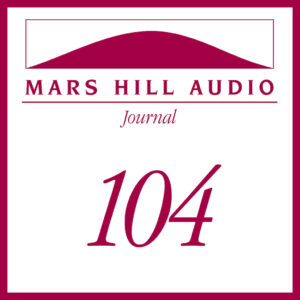
Mars Hill Audio Journal, Volume 104
FEATURED GUESTS: James Le Fanu, Garret Keizer, Daniel Ritchie, Monica Ganas, Jonathan Wilson-Hartgrove, and Peter J. Leithart
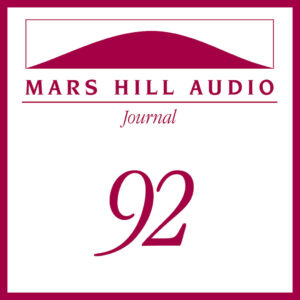
Mars Hill Audio Journal, Volume 92
FEATURED GUESTS: Jake Halpern, Stephen J. Nichols, Richard M. Gamble, Peter J. Leithart, Bill Vitek, and Craig Holdrege
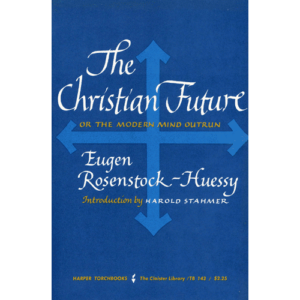
A forgotten prophet
Eugen Rosenstock-Huessy: “Moderns are puzzled by the perfectly unsystematic, irrational, antilogical institution, the poorest organization on earth but yet fully alive — the family.”